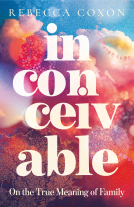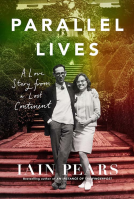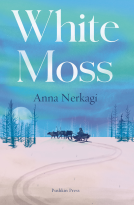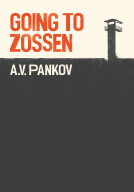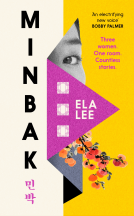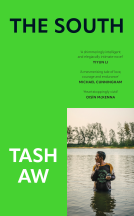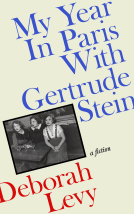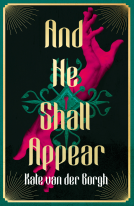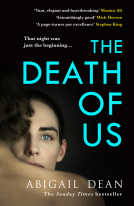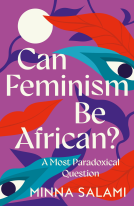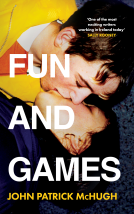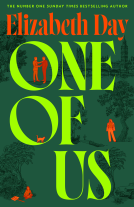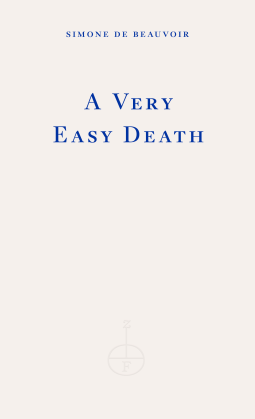
A Very Easy Death
by Simone De Beauvoir, translated by Patrick O'Brian. Foreword by Ali Smith.
This title was previously available on NetGalley and is now archived.
Send NetGalley books directly to your Kindle or Kindle app
1
To read on a Kindle or Kindle app, please add kindle@netgalley.com as an approved email address to receive files in your Amazon account. Click here for step-by-step instructions.
2
Also find your Kindle email address within your Amazon account, and enter it here.
Pub Date 14 Jun 2023 | Archive Date 21 Jun 2023
Fitzcarraldo Editions | Fitzcarraldo Classics
Talking about this book? Use #AVeryEasyDeath #NetGalley. More hashtag tips!
Description
A Very Easy Death has long been considered one of Simone de Beauvoir’s masterpieces. The profoundly moving, day-by-day recounting of her mother’s death ‘shows the power of compassion when it is allied with acute intelligence’ (Sunday Telegraph). Powerful, touching, and sometimes shocking, this is an end-of-life account that no reader is likely to forget.
Available Editions
| ISBN | 9781804270448 |
| PRICE | £12.99 (GBP) |
Available on NetGalley
Average rating from 33 members
Featured Reviews
“I was calmer than before Prague. The transition from my mother to a living corpse had been definitively accomplished. The world had shrunk to the size of her room: when I crossed Paris in a taxi I saw nothing more than a stage with extras walking about on it. My real life took place at her side, and it had only one aim - protecting her.” In her memoir-essay A Very Easy Death, in the initial translation from French by Patrick O’Brian, Simone de Beauvoir writes about the final few weeks of her mother’s life, as a fall at home and subsequent hospital stay unveil the aggressive cancer inside of her. It’s a reflection on all the horrors of bodily illness, and the extremities of grief, even after — maybe especially after — de Beauvoir and her mother had experienced such a strain within their relationship, caused by her mother’s Catholic opposition to her atheism. In the unspooling of her mother’s rapid decline, de Beauvoir reflects on this and other tensions that arose between them, as well as de Beauvoir’s sister, affectionately called Poupette. She also ruminates on womanhood more generally, not all that surprisingly, and seeing her mother more wholly and compassionately than ever: “Cut off from the pleasures of the body, deprived of the satisfactions of vanity, tied down to wearisome tasks that bored and humiliated her, this proud and obstinate woman did not possess the gift of resignation. Between her fits of anger she was perpetually singing, gossiping, making jokes, drowning her heart's complaints with noise.” It’s a really beautiful essay.
 Reviewer 1159130
Reviewer 1159130
A Very Easy Death by Simone de Beauvoir is a poignant and powerful memoir that chronicles the final days of the author's mother. In this beautifully written book, de Beauvoir reflects on the emotional and physical pain of watching her mother suffer and ultimately pass away.
One of the strengths of A Very Easy Death is de Beauvoir's ability to capture the nuances of her mother's character and the complexity of their relationship. Through a series of conversations and memories, de Beauvoir paints a vivid and intimate portrait of her mother, showing her strengths, weaknesses, and the deep love that they shared.
The book is also a meditation on death and dying, and de Beauvoir explores these themes with sensitivity and depth. She writes with honesty about the physical pain and emotional turmoil that her mother endured, as well as the impact that her death had on those around her.
De Beauvoir's writing is both lyrical and precise, and she has a gift for creating evocative and poignant images that stay with the reader long after they have finished the book. Her prose is both introspective and philosophical, and she uses her own experience to explore broader themes about the human experience.
Overall, A Very Easy Death is a moving and deeply affecting memoir that is sure to resonate with readers who have experienced loss and grief.
A brilliant, visceral recount of grief, loss and the complexities of a strained mother-daughter-sister relationship. This is my first reading of any de Beauvoir and what a shame I haven’t engaged sooner.
This memoir-essay is fluid and open, and with unflinching honesty describes a feeling and thought that many are often too afraid to say - especially when it comes to speak of a loved one post-death.
de Beauvoir reflects in a way that makes it feel familiar and relatable — grief doesn’t project in some universal way but it still tugs at this familiar heartstring that makes you reflect on your own experiences with this tricky emotion.
A Very Easy Death is a timeless classic, and I am extraordinarily grateful for the chance to read it. The deceptively-named memoir of Simone De Beauvoir's mother's drawn-out illness and painful death. The writing is eloquent and brutal, pulling no punches as she tells the detailed and terrifying truth of her mother's demise. A stark reminder that the worst can happen to anyone and that illness affects not just the patient, but all those that love them. This is a stunning memoir and, whilst definitely a difficult read, is an important work of literature and I am very glad to have had the pleasure of reading it.
In this raw and affecting memoir, de Beauvoir records her mother's final days, clinging to life in a clinic. Death is anything but easy for all involved, but de Beauvoir explores the ways we desensitise ourselves from death and how we process and habitualise end of life care to get through it.
O'Brian's translation captures the elegance of the original prose, but that doesn't make the content any less brutal in its honesty. The introduction from Ali Smith is another bonus: it enhances your reading of the essay by briefly situating it in its historical and personal context.
Unflinching and universal, A Very Easy Death is an important read.
 Reviewer 876149
Reviewer 876149
Ali Smith’s persuasive introduction highlights how controversial Simone de Beauvoir’s account was when it first appeared, a brief, but detailed account of the last few weeks of her mother’s life – or maybe better described as her long, drawn-out death. At the time, 1964, De Beauvoir was accused by some critics of cashing in on her mother’s experiences. I don’t know what ultimately drove her to publish this all I can say is that it has an incredible force. De Beauvoir adopts a direct, immediate style, beginning by recounting the phone call telling her of her mother’s fall and subsequent admission to hospital. De Beauvoir’s mother, Françoise, was then 78, a little frail and arthritic with some gastric issues but otherwise apparently healthy. And even so, de Beauvoir tells herself, almost nonchalantly, “she was of an age to die.’ But the manner of the death and her mother’s treatment at the hands of a succession of arrogant, sometimes dismissive doctors proved an unexpected education both in the possible nature of death and in the reality of loss.
De Beauvoir’s relationship with her mother, famously documented in her early memoirs, was troubled, where de Beauvoir rebelled against social expectations, her mother embraced them, seeking refuge in convention. For de Beauvoir her mother seemed very much a creature of her time, brought up to be ‘dutiful.’ Sometimes aloof, sometimes controlling but often someone with very little control over her own life. Here de Beauvoir almost effortlessly captures the ambivalence that can exist between mothers and daughters, the awkward mix of intimacy and distance, years of difficult visits and strained conversations disrupted by sudden flashes of unanticipated tenderness.
De Beauvoir also exposes the harsher realities of the medical treatment of women – far too much of what she reveals could still be applied to their treatment today. Although de Beauvoir’s mother has been admitted for a broken leg, her ongoing, gastric problems, considered minor by her usual doctor and mere anxiety by later ones, are actually the symptoms of a major tumour. Even though it’s rapidly obvious Françoise’s survival is highly unlikely, her doctors insist on subjecting her to a series of painful regimes including invasive surgery. For them she’s more object than person. In addition, they advise her family against telling her the diagnosis – at the time a diagnosis of terminal cancer was commonly withheld from women, considered too fragile to deal with the truth about their illness, and unlike men not in need of making advance provisions for businesses or families. Yet this was a woman, as de Beauvoir points out, who at 54 left a penniless widow retrained and restarted her life as a librarian, learnt new languages, even taught herself to cycle.
The attitude of the doctors towards patients documented here would be absurd if they weren’t so tragic: drugs are rationed in case of future addiction, euthanasia is not a possibility nor palliative care so following procedures, however painful, pointless, or debilitating is what must be done. De Beauvoir is clearly, acutely, aware of this absurdity yet feels unable or powerless against the weight of the system in which she and her family are now enmeshed. Her thoughts reminded me at times of reading the surgeon Atul Gawande’s more recent Being Mortal on attitudes towards elderly care, partly inspired by his own father’s experiences.
De Beauvoir takes turns with her sister, and other family members, to sit with her mother in the six weeks between hospital admission and death. She records everything around her with a keen eye, from the small kindnesses of some nurses to the lack of concern for her mother’s dignity by others. The scene, every detail of the hospital room are imprinted on her, in a way I think many will recognise. Outside France is going through a period of industrial unrest and the war is raging in Vietnam but time slows down and the outer world seems either unreal or bizarre. Yet de Beauvoir’s politics still surface, she notes the distinctions between the everyday of the people dying on the public wards and her mother in her private room, the poor pay and conditions of the obviously overworked nurses. De Beauvoir’s experiences lead to a series of reflections on the nature of death in which she questions her earlier assumptions including her impressions about the death of the elderly, concluding that the value of any life is such that death is always a tragedy, and one too often accompanied by violence, drawing on Dylan Thomas it’s a cause for rage not submission. Urgent, hypnotic and devastating. Translated by Patrick O’Brian.
 Odette L, Reviewer
Odette L, Reviewer
Thank you for the advanced copy.
This is a very emotive subject matter and not everyone will be able to read this. My mother in law has terminal cancer and I work in Primary Care for the NHS and I am very passionate about end of life care and support.
For me A Very Easy Death is a beautiful book, it's very well written, incredibly detailed and it reminds us all that life is very short. I am glad I have read it and will read it again. The subject matter is very emotive. Death is incredibly hard on everyone surrounding the dying person and this book touches on this.
In my humble opinion this is a very important book and a must read at the right time for everyone.
Highly recommended
